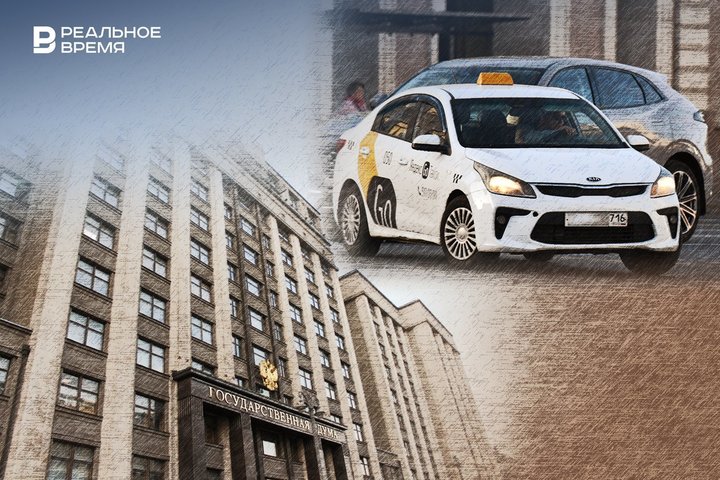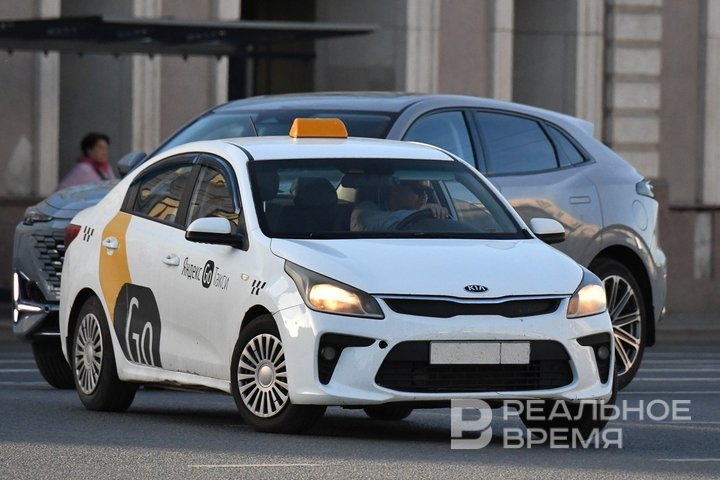New taxi law threatens tariff rises and quality of services falls
Tatarstan predicts higher prices for rides, reduced comfort and return of grey taxi service

The law banning the use of non-localized vehicles for taxi needs has been adopted, and experts have already made disappointing forecasts for the next three years. It is expected that rides will become much more expensive, the number of taxi fleets will be significantly reduced, and illegal taxi service will return to the streets of Russian cities. Realnoe Vremya found out how the taxi market in Tatarstan may change, what consequences its participants expect from the “localization law” and how much these innovations will cost businesses and passengers.
The localization law is asked to be checked for discrimination
The law on taxi localization has been adopted by the State Duma in the final reading. Its final version stipulates that from 1 March 2026, only cars that meet one of the localization parameters will be included in regional taxi registries. The list of car models that meet this requirement should be published by the Ministry of Industry and Trade, but it has not yet been made public, even in a preliminary version.
The restrictions will not affect those vehicles that were included in the register before the specified date. All other taxi cars must either be made under special investment contracts concluded from 1 March 2022 to 1 March 2025, or meet the government's requirements for public procurement of automotive products (assessed by the sum of points for performing technological operations during production directly in Russia and must exceed 3,200 points). AvtoVAZ cars, some Moskvich models and Evolute electric cars meet the latter condition.

Car owners will be required to indicate the year of manufacture of the car and the amount of points in the notification of inclusion of information in the regional register. Cars that cannot be included in the regional taxi registers due to non-compliance with the localization requirements will not be legally used for transportation.
Even before the adoption of the law on taxi localization, the Union of Digital Platform Users Digital World addressed a letter to the Federal Antimonopoly Service with a letter addressed to the head of the Federal Anti-Monopoly Service Maxim Shaskolsky, in which he asked to conduct an audit of the then bill for unfair competition and warned about the possible consequences of its adoption. In particular, the appeal stated that the project violates the law On Protection of Competition, which prohibits the creation of discriminatory conditions for individual market participants, violates the rights of consumers by limiting their ability to receive a service of due quality, contradicts the article of the Civil Code, which asserts the freedom of citizens and organizations in concluding an agreement and determining its terms, and the requirements of the Treaty on the Eurasian Economic Union concerning the protection of competition in the member states of the union, and the prospects for rising prices for taxi services.
Realnoe Vremya sent a request to the antimonopoly service about the results of the consideration of the appeal of the Union of Users of Digital Platforms Digital World. Upon receipt, the response will be published.
“I would change it for a foreign car”
Meanwhile, the Public Council for the Development of Taxi presented the results of a survey in which the owners and managers of 276 taxi companies participated. It turned out that 51% of them have Lada cars, 11% — other domestic models, 38% use foreign cars. Rea
At the same time, the share of Russian cars in taxis is by no means predominant: in 40% of the surveyed fleets it reaches 20%, in 60% — from 10 to 18%.
The survey also showed that more than 70% of its participants would prefer to replace a Russian car with a foreign car.
In addition, data from the taxi ordering service Maxim was made public: in the central part of Russia, the taxi fleet of partner carriers consists of 20-40% domestic cars, in the Urals and Siberia — about 30%, and in the east of the country their number on average does not exceed 5%.
Back to the future
Changes in legislation, as predicted by federal analysts, may lead to an increase in taxi fares: in Moscow, prices for trips may triple and double in the regions. Realnoe Vremya contacted Yandex Taxi with a request for forecasts for tariff changes, but the company said that it does not provide comments on this topic.
Tatarstan experts were cautious in their assessments and did not name any figures, but they confirmed that a price hike is inevitable.

In his opinion, the fact that the aggregator takes a percentage of the cost of the trip from the driver will also affect the growth of tariffs. The cost of the service for the passenger will increase — the operator's share in the tariff will increase, and the driver (car owner) will be forced to raise the price, since he needs to recoup the trip.

Since the list of car models that can be used for taxi transportation has not yet been published, today it is difficult to say whether such a service as business class will remain on the market at all, Tayepov noted. There is a high risk that solo taxi drivers will leave the legal services market altogether:
“Due to the fact that the car does not meet the requirements, and the unwillingness to change a foreign car for a domestic car, we can return to the past. We understand that taxi companies will be able to restructure and start buying new cars, and a person who works as a taxi driver for several hours a day is unlikely to buy a Lada Granta for this if he previously drove a Kia Optima.”
Let's pay not with money, but with comfort?
“The new law will be in effect, as I understand it, for new cars, and only from 2026,” says Airat Gatin, director of the Kazan taxi company Black Auto. “From that moment on, licenses will not be sold for cars that do not meet the approved criteria. But the law does not have retroactive effect, and cars for which licenses have already been obtained will remain in operation. I can assume that the fleet will age gradually, and new cars will be purchased taking into account the requirements of the law. And I think that it is possible that some subsidies and promotions will appear for purchasing domestic cars for taxi needs. But ultimately, it seems to me that the consumer will suffer. Previously, when calling for Comfort Plus, he expected a good Korean, perhaps a Japanese, and now for the same money, he will get a Chinese with Russian roots.”

Gatin believes that due to the need for fleets to purchase new cars as the existing ones age, taxi fares will not increase — changes in the legislation will have to be paid for not with money, but with quality. But this will not happen today, and not tomorrow, and not even in 2026, when the law will be in full force, but in two years: “2028 may be a turning point in terms of the quality of services.”